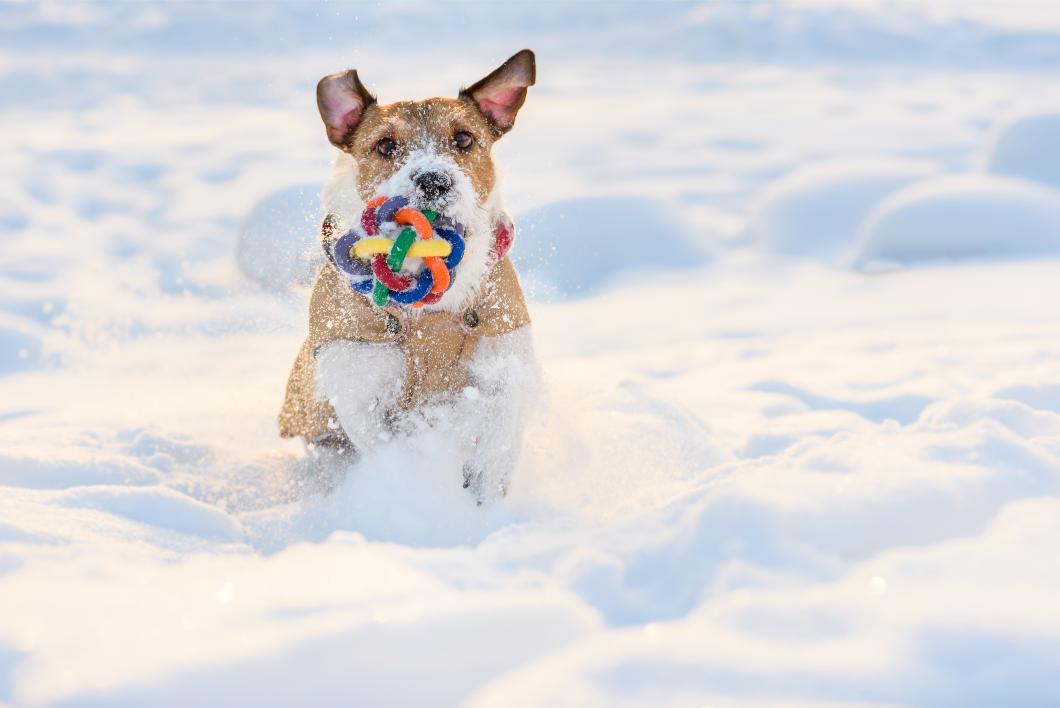Recognizing and Treating Pet Hypothermia and Frostbite

Winter can be a beautiful time of year, but it’s important to remember that the cold weather can pose serious risks to our furry companions. As temperatures drop in Fort Wayne, pet owners need to stay vigilant about pet hypothermia and frostbite. Dupont Veterinary Clinic is here to help you recognize the signs and learn how to keep your pets safe in freezing conditions.
What Is Pet Hypothermia?
Hypothermia in pets occurs when their body temperature falls below normal due to prolonged exposure to cold weather. It’s more than just shivering—hypothermia can be life-threatening if left untreated. Understanding the symptoms of hypothermia in pets can help you act fast to protect your dog or cat.
Some signs to watch out for include:
- Shivering or trembling: A natural response to cold that can signal early stages of hypothermia.
- Lethargy: Pets may become sluggish or less responsive.
- Cold ears, paws, and tail: These extremities are the first areas the cold affects.
- Difficulty breathing: As hypothermia worsens, pets may struggle to breathe normally.
- Stiff muscles: The cold can cause muscles to become tense and uncoordinated.
If you notice these signs, it’s time to take action.
Treating Pet Hypothermia
If your pet is showing signs of hypothermia, quick intervention is key. Here are steps to follow for cold weather pet safety:
- Move them indoors: Get your pet out of the cold immediately.
- Warm them gradually: Use warm (not hot) blankets or towels, focusing on their core body.
- Offer warm fluids: If your pet is alert, offer warm water or an electrolyte solution.
- Monitor their temperature: Use a pet thermometer if available; if their temperature drops below 99°F, seek veterinary attention.
Never use direct heat sources like heating pads, which can cause burns. Contact your veterinarian for further advice once your pet’s temperature is stable.
What Is Frostbite in Pets?
Frostbite occurs when a pet’s skin and tissues freeze due to extreme cold exposure, usually affecting their ears, paws, and tail. Pet frostbite is dangerous because the damage often isn’t visible until it’s too late, which makes prevention vital.
Symptoms of Frostbite in Pets
Frostbite can be tricky to spot in its early stages, but here are some signs that may indicate your pet is suffering from frostbite:
- Pale, cold skin: Affected areas may feel hard or cold to the touch.
- Swelling: The skin might become puffy as it thaws.
- Blisters or ulcers: These appear as frostbite progresses.
- Discoloration: Skin may turn black as the tissue dies.
- Pain or discomfort: Pets may lick or chew the affected areas.
If you suspect frostbite, don’t panic. There are ways to help your pet recover.
Frostbite Treatment for Pets
Just as with hypothermia, acting quickly is essential for frostbite treatment. Follow these steps if you notice any frostbite symptoms:
- Move your pet indoors immediately to a warm environment.
- Soak the affected areas in warm (not hot) water to help thaw the frozen tissue gradually.
- Wrap your pet in a warm blanket after drying them off.
- Avoid rubbing the frostbitten areas, as this can cause further damage.
After providing first aid, contact your veterinarian. Severe cases of frostbite may require professional treatment, such as antibiotics or even surgery, to remove dead tissue.
Prevention: Keeping Your Pet Safe in Cold Weather
Prevention is the best medicine when it comes to cold weather pet safety. Here are some tips to protect your pets from hypothermia and frostbite this winter:
- Limit outdoor time: Keep walks short when temperatures drop.
- Use pet-friendly winter gear: Consider investing in a coat or booties for your dog. Learn more about winter paw care in our related blog post.
- Create a warm space: Ensure your pet has a cozy, draft-free place to rest indoors.
- Watch for weather warnings: Avoid taking your pet out in extreme cold or windy conditions.
A little preparation can go a long way in preventing these cold-weather risks for your pets.
Keep Your Pets Safe This Winter With Dupont Veterinary Clinic
If you suspect your pet may be suffering from hypothermia or frostbite, or if you have any concerns about cold weather pet safety or would like to schedule a wellness visit or other service, don’t hesitate to contact us. Our team is here to help you keep your furry family members safe and healthy all year long.
